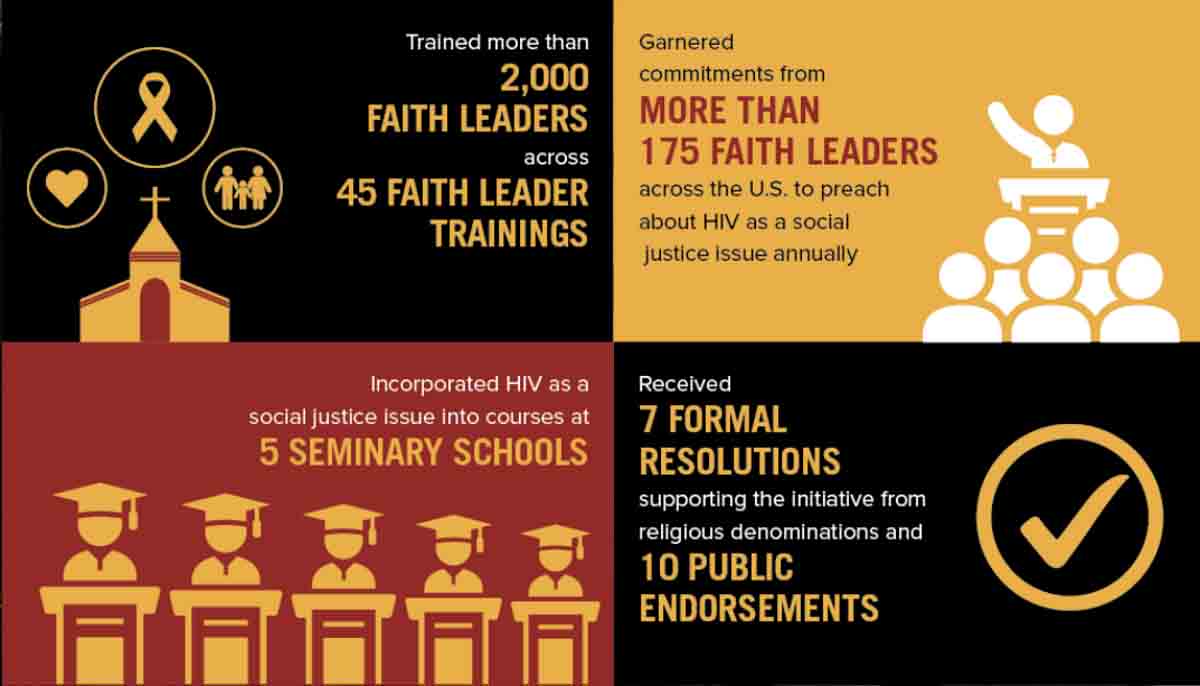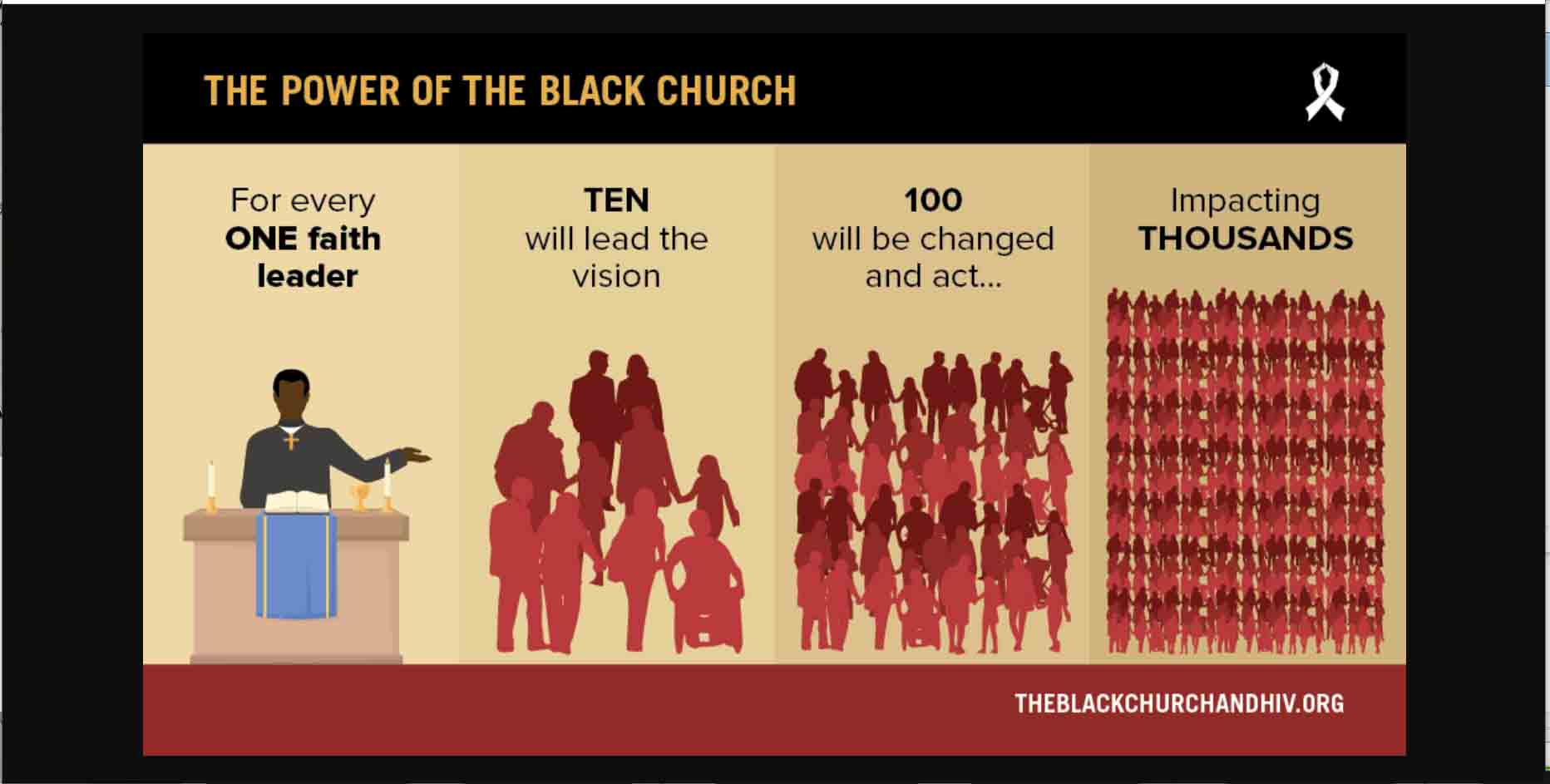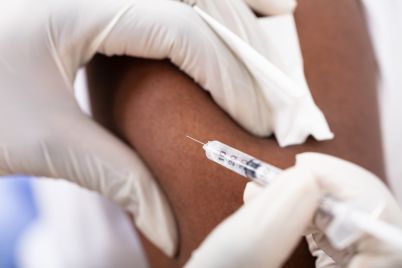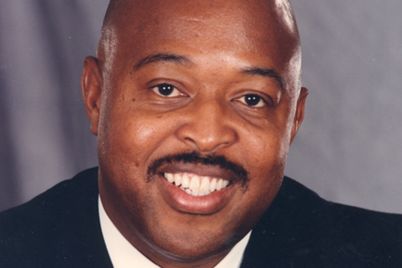The Black Church & HIV: The Social Justice Imperative was created to develop a national network of faith leaders, community members, and religious institutions focused on impacting the nationwide HIV epidemic in Black communities.
By J.A. Jones, Staff Writer
NATIONWIDE — The Black Church & HIV: The Social Justice Imperative was established to provide resources to church leaders and is aimed at reducing the impact of HIV on Black America by viewing it through a social justice lens.
The initiative was created to develop a national network of faith leaders, community members, and religious institutions focused on impacting the nationwide HIV epidemic in Black communities. The trainings, activity manuals, video testimonies, webinars, sermon ideas, and other tools were developed as part of the Clinton Global Initiative to Action with the NAACP in partnership with Gilead Sciences.
“In the same way that our Lord once touched and restored to life the daughter of Jairus, the NAACP has partnered with the Black Church to represent a healing touch for African Americans — including those who are at risk of contracting or are living with HIV,” NAACP’s president and CEO, Cornell William Brooks, a lawyer and activist, stated.
From 2012-18, the project held 45 trainings and educated more than 2,000 faith leaders nationwide, with over 175 of those leaders committing to discuss HIV as a social justice issue with their congregations. Additionally, the project succeeded in supporting the implementation of the social justice issues of HIV in five seminary schools.

“The Black Church is the only institution that has loved our people from the cradle to the grave.
We loved them through slavery, through poverty, and through racism. We cannot make HIV the exception to our love. As the Mother Institution, we must love our people through the valley of HIV,” said Bishop John Bryant, African Methodist Episcopal Church, in Chicago.
In the video, The Power of the Black Church, several faith leaders speak to their understanding of bringing awareness and compassion for those who are diagnosed or who remain untested but may have contracted the virus. These faith leaders seek to embody the non-judgmental, all-encompassing love of Christ through the initiative.
Rev. John R. Faison, Watson Grove Missionary Baptist Church, Nashville acknowledged, “Anybody who society had marginalized, had thrown away, had labeled the least, lost, or left out — Christ was very intentional about taking his ministry, to those places.”

Bishop Oliver C. Allen, III, The Vision Church of Atlanta, noted, “The role of the church is to spiritually lead communities and lead people to become stronger communities of faith. But a part of our faith is how we view politics, how we view health, how we view our lives.”
“We wrap social services around the ministry. So, what we do is that we actually meet people where they are. And I really think that’s the easiest explanation if you would, of what social justice is: it’s meeting people where they are,” added the Rev. William Francis of Atlanta Faith in Action.
The website offers a number of sermon themes and scriptural references for church leaders:
- Am I my brother’s keeper? Genesis 4:8-13
- Jesus lifted up the “other.” We have to lift each other up. I Thessalonians 5:10-12
- Jesus told the disciples to meet him in the area of Galilee where no one wanted to go, and that is what we have to do – go and address the issues where others will not go. Matthew 28
- Jesus’ command for us to love one another. John 13:34
- The Good Samaritan. Who is our neighbor? We have a responsibility to the marginalized. Luke 10:25- 37
- The man who brought his son for Jesus to heal. We have to bring those who are hurting to Jesus. John 4:43-54
The Power of the Black Church also addressed the need for church leaders to have an awareness of the human complexities and frailties from a family perspective, as well as realizing that just because they didn’t WANT to address complex issues, these issues were happening and being discussed with or without them.
“As a spiritual leader, when you are speaking to the pews, you’re also speaking to all of the issues that people bring to the pew. They bring their lives; they bring their family, they bring their background, they bring their medical history, they bring their family histories. So, all of that impacts what people do and how people do it,” commented Bishop Allen.
Rev. Faison relayed, “I think it’s also important that you know that just because you don’t talk about it doesn’t mean it’s not being talked about. Everything that happens in your city is in your church. If there is drug abuse in your city, there’s drug abuse in your church. If there’s domestic violence in your city, there’s domestic violence in your church. If there’s HIV and AIDS and your city, there’s HIV and AIDS in your church. So, just because you’re not talking about it doesn’t mean people aren’t talking about.”
Dr. Marjorie Innocent of the NAACP closes the video: “The reality is that African Americans are really disproportionately affected by the disease. And we really need all-hands-on-deck to address the problem. And the faith community, from our perspective, is part of the solution, just as it has been part of the solution in addressing a lot of the issues affecting African Americans for decades.”
Other videos on the site address the impact of First Ladies, faith leaders’ willingness to take on the issues, and the social justice imperative. There is also an entire webinar on sermons for preaching on HIV as a social justice issue.
While the developmental part of the project ended in 2018, the initiative offers ongoing support and encourages sharing testimonies on your congregation’s progress if you have taken on the initiative in your church and are using the resources. Send your questions or comments to info@TheBlackChurchandHIV.org. For more information on the initiative, visit theblackchurchandhiv.org.








